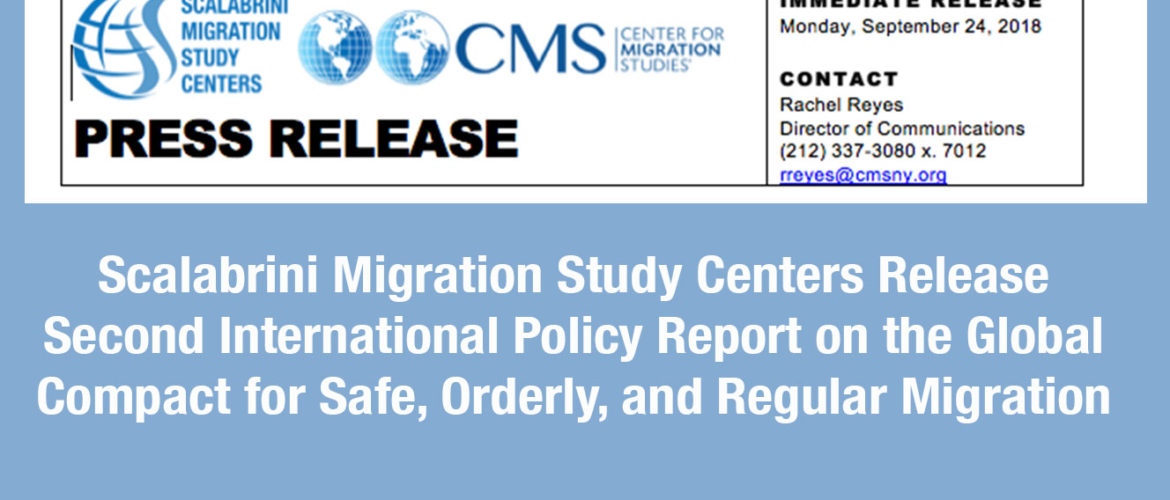New York, NY – The global network of seven Scalabrini think tanks on migration today released its second International Migration Policy Report: “Perspectives on the Content and Implementation of the Global Compact for Safe, Orderly, and Regular Migration.” The study centers – founded by the Missionaries of St Charles (Scalabrinians), a Catholic community dedicated to serving migrants and refugees throughout the world – include: Centro de Estudios Migratorios (CEM) in Brazil; the Centro de Estudios Migratorios Latinoamericanos (CEMLA) in Argentina; the Centre d’Information et d’Études sur les Migrations Internationales (CIEMI) in France; the Center for Migration Studies of New York (CMS); the Centro Studi Emigrazione Roma (CSER); the Scalabrini Institute for Human Mobility in Africa (SIHMA); and the Scalabrini Migration Center (SMC) in the Philippines. The centers are also members of the Scalabrini International Migration Network (SIMN), a global network of 250 entities helping migrants, refugees, seafarers, and victims of human trafficking in 34 countries across five continents.
The 2018 report examines the issues discussed and negotiated by the United Nations member states in developing the Global Compact for Safe, Orderly, and Regular Migration (“the Compact”). Section 1 explores the issues that have been controversial in negotiations of the Compact and features research on migration challenges, including return migration, labor migration, and unaccompanied migrant children. This section also offers recommendations for how to resolve these issues and ensure the Compact’s successful implementation. Section 2 showcases short essays addressing “on the ground” issues confronting migrants in vulnerable situations, with a focus on how faith-based organizations help fill service and protection gaps. Finally, section 3 presents the numerous interventions made by SIMN and CMS during the consultation and negotiation phase of the Compact.
“The process leading to the Global Compact on Migration brought together UN member states and civil society in an unprecedented effort to respond to today’s migration challenges. If approved in Morocco in December 2018, the Compact will serve as a framework for responding to this timeless human phenomenon in a coordinated and humane manner. However, implementation will be key,” said Donald Kerwin, CMS’s executive director. “To that end, this report sets forth important policy ideas to guide the Compact’s implementation and highlights the work of faith-based organizations in promoting its success.”
The report is posted to the Center for Migration Studies website at http://cmsny.org/publications/scalabrini-policy-report-2018/
For more information, please contact Rachel Reyes, CMS’s Director of Communications, at rreyes@cmsny.org.
——————————————————————————————————————————————————————————
The Center for Migration Studies (CMS) is a New York-based educational institute devoted to the study of international migration, to the promotion of understanding between immigrants and receiving communities, and to public policies that safeguard the dignity and rights of migrants, refugees and newcomers. For more information, please visit www.cmsny.org.


